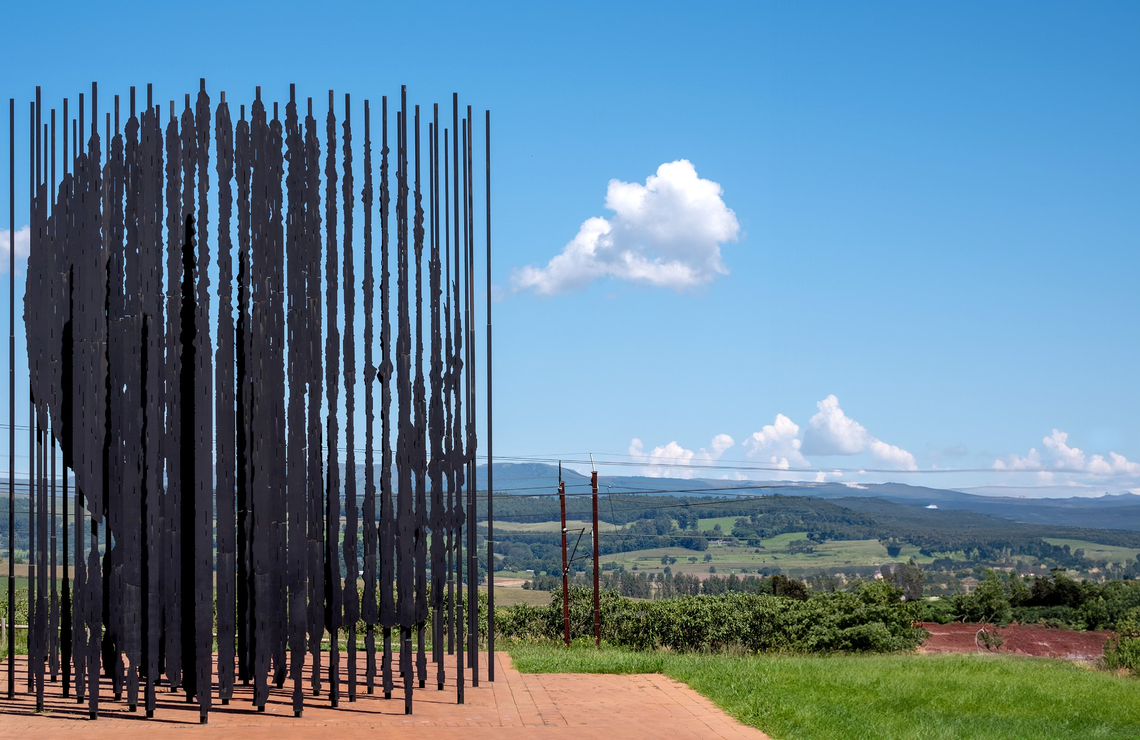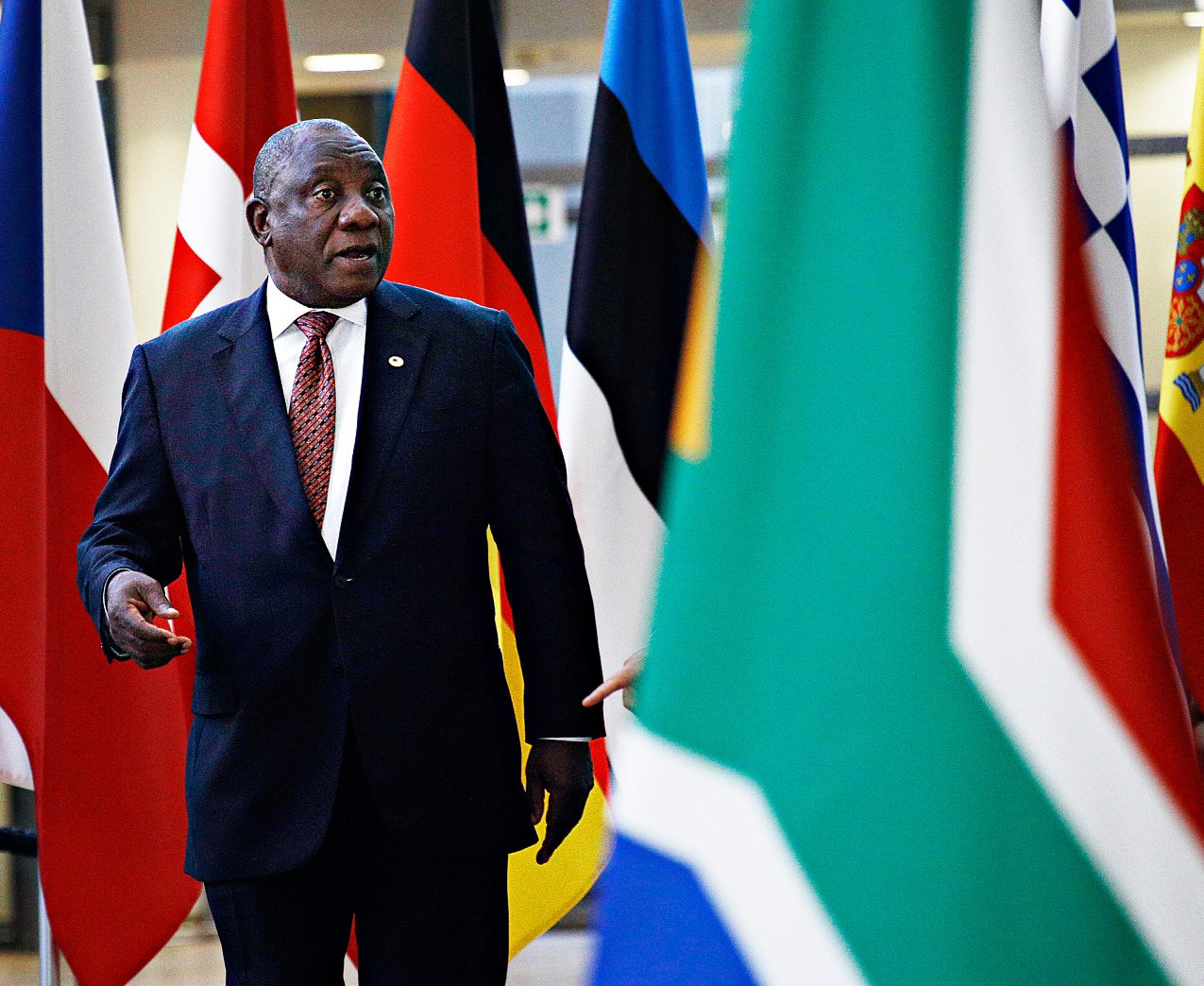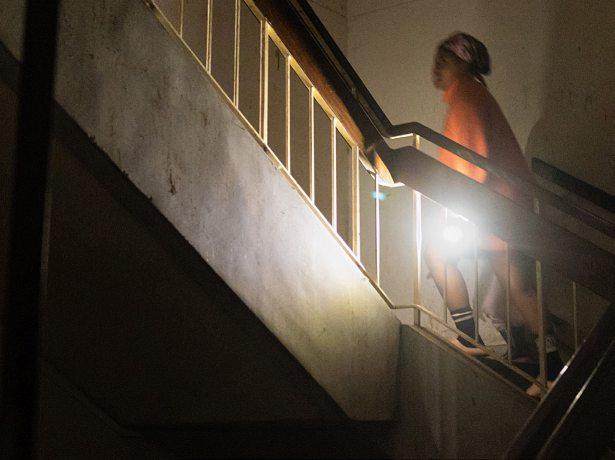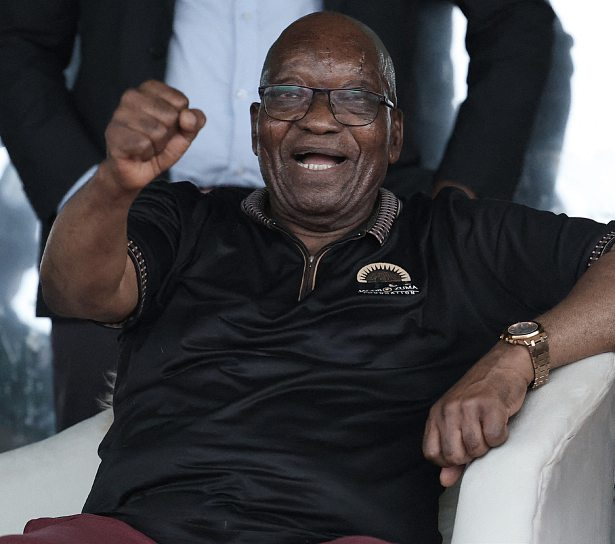
South Africa
Awaiting the big change
Have Mandela's heirs failed? It's been thirty years now, but the ANC has never managed to reduce the social inequalities that were the poisonous legacy of apartheid. Corruption, complacency and violence have taken root. The general elections on 29 May could see the historic party lose its absolute majority for the first time.

MICHAILIDIS/SHUTTERSTOCK
‘Let's do more, together. A better life for all’. The election slogan chosen by the african national congress (ANC) appears to have been coined by an out of touch communicator who left the country at the end of the late Nelson Mandela's only presidential term (1994-1999).
Unless this whimsical slogan was dreamt up by a particularly cynical joker. The fact is that, since the fall of apartheid, never before has the situation been so dire. Never before has the ANC, the prestigious former liberation movement that has mutated into a sclerotic party state, been so discredited. Never before, in thirty years, have the extent of the economic and social problems facing South Africa's 60 million people so disrupted every aspect of their daily lives. The multi faceted crisis is such that it now affects the citizens of the rainbow nation even after they have passed away: the country's funeral directors have had to implore relatives of the deceased to reduce their burial period to “a maximum of four days”, rather than the traditional week. The reason is as prosaic as it is appalling: because of the almost daily power cuts, undertakers are no longer able to guarantee the dignified preservation of the bodies... The mismanagement of the electricity company Eskom has become the sad symbol of an ANC on its last legs.
By the early 1990s, Nelson Mandela's ANC had succeeded, after decades of armed struggle, international mobilisation and bitter negotiations, in freeing South Africans and humanity from an outrageously racist regime that will go down in history as one of the most abject political systems of the 20th century. More importantly, by working towards reconciliation, Nelson Mandela and his comrades succeeded in averting a civil war. However, during the terms of office of Madiba's first successor, Thabo Mbeki (1999-2008), the shortcomings inherent in the ANC's ultra dominant position on the political scene became apparent. When a democratic party wins between 60% and 70% of the vote, with a parliamentary majority of between 230 and 279 out of 400 MPs, why bother innovating, performing, being accountable or even maintaining any integrity because the arithmetic guarantees its re-election, regardless of the behaviour of its elected representatives or their track record. Year after year, the prestige of the Liberators' party has been tarnished by scandals of corruption, cronyism and business dealings. Thabo Mbeki himself admits that some local ANC officials are “criminals”.
This syndrome of impunity and irresponsibility reached its pinnacle in the 2010s with the Gupta scandal, known as state capture: during Jacob Zuma's presidency (2009-2018), the three Gupta brothers, billionaires of Indian origin, siphoned off public money, with the blessing of the head of state and members of his entourage. This vampirisation of the country consisted of propelling a close relative to the head of a public company or administration, so that this accomplice would favour the brothers' companies.
Virtually stagnant for a dozen years, the country's economic growth, which was just 0.7% in 2023, is estimated at 1% this year and 1.2% in 2025. Household consumption is in the doldrums and the unemployment rate rose again at the beginning of the year, climbing to 32% and as high as 45% among young people. Faced with this stagnation, the ANC seems to be floating above the reality of the country. Its transformation from a politico military liberation movement into a business oriented party state resonates with that of president Cyril Ramaphosa (71): a child of Soweto, leader of the 1987 miners' strike, drafter of the 1996 constitution, Madiba's heir apparent to succeed him as head of state, Ramaphosa went into business when the ANC authorities chose Mbeki over him. Benefiting from black economic empowerment initiatives and connections within the new post apartheid elites, Ramaphosa made a fortune at standard bank, mobile operator MTN and even McDonald's. In 2015, Forbes magazine valued his wealth at $378 million. In August 2012, in Marikana (north-west), Ramaphosa, who had become a director of mining company Lonmin, asked the police to “restore order” against the strikers: a request that left 34 miners dead.
Light years away from the lifestyle of the elite, in the urban townships and veld villages, ordinary South Africans are struggling to survive. Survive is the operative word. With 27,368 homicides in 2023, an average of 75 a day, South Africa is one of the most dangerous countries in the world. It also holds the terrifying record for the highest number of rapes: 380,000, or more than a thousand every 24 hours. White farmers are not the only victims of crime, contrary to what the extreme afrikaner right would have us believe, who speak of ‘white genocide’. It is all 60 million South Africans who suffer from insecurity: possession of even the smallest item of value (telephone, television set, vehicle, etc.) makes every citizen a potential target for thieves who don't hesitate to kill. In the townships, young girls are sexually assaulted (95% of rape victims are black), and young boys can be threatened if they refuse to join a gang. Getting from one place to another, going out at night, drawing cash... Every action involves assessing and anticipating the risks. The police are overwhelmed by the scale of the task: the desperately low clearance rate for homicides, estimated at 12%, gives criminals a sense of impunity, which facilitates committing the crime. All South Africans protect and defend themselves according to their means: rich neighbourhoods, both white and black, use private security companies equipped with assault rifles and armoured vehicles. In the townships, thieves caught in the act are sometimes lynched on the spot by the crowd. In Soweto, a xenophobic organisation, Operation dudula (‘to repel’ in Zulu), has sprung up to intimidate immigrants, who are equated en masse with delinquents (the country officially has 3.95 million immigrants, mostly from southern Africa and the Indian subcontinent). People are so exasperated by the lack of security that it is not uncommon to hear South Africans say they are in favour of reinstating the death penalty, which was abolished in 1995.
Colonialism's grim legacy
This out of control crime is largely explained by inequality. Statistics show that it is not the poorest countries that are the most violent, but the most unequal. “More unequal societies tend to have higher crime, as well as lower social trust”, observe Daniel Nettle and Benoît de Courson in a study published in 2021 by the university of Newcastle (England) and scientific journal Nature. The authors write that “in more unequal societies, the least fortunate individuals are absolutely worse off than in more equal societies of the same average wealth”. The explanation is psychosocial: inequality makes poverty more unbearable. “Individuals perceive the magnitude of social differentials in the society around them, and this affects their state of mind, increasing competitiveness, anxiety and self serving individualism.” The authors believe that reducing social inequalities would have a greater impact on crime than more coercive measures. This situation is not unique to South Africa: in the republic of Ireland in the early 1990s, the economic take off of the country, which until then had been one of the poorest in western europe, was accompanied by a sharp rise in crime.
South Africa is the continent's second largest economy, with an estimated GDP of $405.9 billion, but it is the most unequal country in the world, with a GINI coefficient of 0.67. According to data from the world bank and french economist Thomas Piketty's world inequality Lab, 10% of the South African population owns 80% of the country's wealth. Around 3,500 citizens own more than the 32 million least well off. “Skin colour remains a key factor in inequality, given its impact on education and the labour market,” writes the world bank. “The legacy of colonialism and apartheid, rooted in racial and spatial segregation, continues to reinforce its inequalities.” In three decades, the ANC has not managed to reduce these gaps in living standards. Worse still: the richest 1% have even consolidated their wealth since the end of apartheid.
This persistent inequality is the bitter fruit of the political compromise that led to the fall of apartheid in the early 1990s. Shortly after Madiba's death on 5 december 2013 at the age of 95, New Yorker columnist John Cassidy wrote that “Nelson Mandela negotiated a peaceful transition to democracy that few observers believed possible”, given the near civil war between the ANC and the Zulu nationalist Inkatha party at the end of the 1980s (around 10,000 deaths) and the atrocities committed by the neo nazis of the afrikaner resistance movement (AWB). This desire for appeasement persists and also explains why the authorities tolerate veritable “states within a state”, such as the traditional Zulu monarchy, despite its proven abuses of power, or the racist communities of Orania and Kleinfontein, founded by whites nostalgic for apartheid. According to John Cassidy, Mandela's desire for reconciliation led him to “give too much away to the white élites, leaving in place a grossly inequitable economic system that excluded the majority”, despite the introduction in 2003 of the black economic empowerment (BEE) positive discrimination programme and then, in 2007, of the broad based black economic empowerment (BBBEE) programme, which enabled the emergence of a black middle class.
Despite the desire for land reform, in 1994, some 77 million hectares of private land belonged almost exclusively to white farmers. Since then, 20 million hectares have been redistributed. But the process is slow, complex and opaque, and hardly free of cronyism and corruption, as the ANC has lost interest in the rural masses to focus on the black urban middle class. Today, many born free South Africans (those born after apartheid), forced into idleness in townships under the control of gangs, or working as sharecroppers for afrikaner farmers on land stolen from their ancestors, are even questioning Madiba's near sainthood: they accuse the nobel peace prize winner of having sold out social justice in the name of reconciliation. In 2017, President Jacob Zuma claimed that “only 10% of large companies are owned by black people”. The reality is more nuanced, calculated Africa check: according to South Africa's commission for employment equity, whites represent 8.8% of the working population, but two thirds of management positions in the private sector. An analysis of a sample of 130 companies, out of 324 listed on the Johannesburg Stock exchange, shows that 60% are run by whites and 40% by blacks. The issue is eminently political: in 2017, in order to light a counter fire to the scandal, the Guptas had paid a British communications agency, Bell Pottinger, to popularise the hashtag #WhiteMonopolyCapital, with the aim of stirring up racial tensions in the country. And today,this issue of inequality and its correction is at the heart of the electoral debates. It could even lead to the ANC's downfall.
Abstain rather than vote against

In the 2019 elections, after the Guptas' spectacular flight to Dubai and Zuma's forced resignation, the ANC fell below the 60% mark for the first time. The polls suggest that this time the party could lose its majority: an opinion poll carried out by the social research roundation (SRF) think tank puts it at around 38%. The ANC could therefore be forced into a coalition for the first time in thirty years. A minority ANC would no longer have sole responsibility for choosing the head of state, with the president of the republic being appointed by the 400 MPs. While not a revolution, this would be a historic change of direction. But beware: while this is the most likely scenario, it is not a certainty. In an analysis published in June 2023 by News24 South Africa and The conversation, academics collette Schulz Herzenberg and Robert Mattes recall how, despite the Gupta scandal, the ANC scored 58% in 2019. They attribute this to “the confluence of two trends that characterise elections in South Africa: the erosion of support for the ANC and the rise in abstention”. Yet abstention is growing faster than the party's popularity is declining. The combination of these two dynamics helps to keep the party artificially afloat. A case in point: in 2006, 52% of those polled claimed to be ‘loyal to the ANC’, but the party won 66% of the vote three years later. In 2018, only 29% of those polled still claimed to be ‘loyal to the ANC’, even though the party won 58% of the vote the following year! The explanation for this discrepancy is mathematical: abstention has tripled from 14% in 1994, in the excitement of the first free elections, to 51% in 2019, in the wake of the Gupta scandal. Academics are therefore warning against a premature burial of the venerable party: for many South Africans, the ANC is ‘the devil we know’. With the trauma of apartheid still fresh in their minds, voters prefer to abstain rather than risk casting another ballot. All the more so as the main opposition force, the democratic alliance (DA, centre right liberal party, 84 MPs), has an image of being a ‘party of whites’, and the Marxist radicalism of the left wing opposition (EFF, Economic Freedom Fighters, 44 MPs) frightens moderates. “The opposition cannot rely solely on voter disillusionment. It has to convince people that it represents a credible alternative”, conclude Schulz Herzenberg and Mattes. So what 'credible alternatives’ do voters have?

The most disconcerting phenomenon of this campaign is undoubtedly the resurrection of Jacob Zuma, who everyone thought was politically dead. The former president, who was forced to resign in 2018 by his vice president Cyril Ramaphosa during the Gupta scandal, was sentenced to 15 months in prison, he served less than three and whose supporters probably triggered the looting in July 2021 (350 dead, 200 shopping centres and 1,200 shops ransacked, etc.). ), joined a new party in december, inspired in particular by the work of Winnie Mandela (1936-2018) and named uMkhonto we Sizwe (MK, ‘spear of the nation’ in Zulu), after the former military wing of the ANC. At the beginning of april, the South African courts granted the deposed president leave to stand in the parliamentary elections, despite his criminal record. Candidate Zuma intends to change the 1996 constitution (drafted by Ramaphosa), which he considers to be ‘unrepresentative’ and full of ‘Western laws’ reinforcing ‘racial and socio economic oppression’. It makes you wonder who was president between 2009 and 2018... A simple last stand or the desire for revenge of an old hand with nothing left to lose? Whatever the case, the polls show Zuma's popularity among young people and in KwaZulu-Natal, his home province. Not only is he hurting his former party and his sworn enemy Ramaphosa, but he is also competing with the radical left, embodied by the economic freedom fighters (EFF).
Recognisable by their red berets, the EFF campaign for land reform and the nationalisation of industries. The party was founded in 2013 on the site of the Marikana massacre, a symbol of the ANC's alleged betrayal of the people. Their ‘commander in chief’, the ebullient Julius Malema former leader of the ANC youth league (ANCYL), expelled in 2011 for his verbal excesses says he is ready to meet Jacob Zuma after the elections to discuss possible future collaboration. After all, Malema is only 43, while the former head of state has just celebrated his 82nd birthday.
On the right, the opposition continues to be represented by the democratic alliance (DA), which has been in power in the western cape since 2009. With 20 to 25% of the vote, this liberal party, dominated by affluent whites but whose electorate includes around 20% blacks, will do everything in its power to prevent an EFF ANC coalition. DA leader John Steenhuisen likens such an alliance to the Doomsday Coalition. To avoid this, the DA has allied itself with action SA, the xenophobic liberal party of Herman Mashaba, former mayor of Johannesburg. Above all, it says it is ready to form a coalition with the ANC! “It will depend on which ANC we are talking about and what its programme would be”, Steenhuisen explained, refusing to confirm whether negotiations had already taken place (which is probably the case...). “I'm not going to sit back and watch my country fall into the hands of radical socialists, we have to see what the least worst option is.” A plan to privatise Eskom could provide a solid basis for negotiations between the DA and the ANC.
Despite being battered in the polls, jostled from both left and right and attacked from all sides over its record, the ANC was still displaying unshakeable confidence a few weeks before the election. Its executive secretary, Nomvula Mokonyane, repeated with aplomb that the party “does not envisage a coalition”, doubting that “power sharing deals” could work. But it will be up to the 27.5 million South African voters on 29 May to decide.